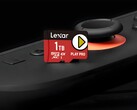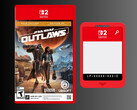Physical media advocates have slammed Switch 2 Game-Key cards, which don’t contain any game data. Until now, Nintendo-published titles have avoided this option that relies on downloads. However, Pokémon Pokopia appears to break that rule after it appears in a new video explaining the format.
Nintendo and The Pokémon Company just announced March 5th, 2026, as the Pokémon Pokopia release date. The timing surprised some gamers, but another video involving the Nintendo game is also drawing attention.
In the YouTube demo, the company highlights the differences between standard Game Cards and Game-Key Cards. Using the new Pokémon game as an example, the dreaded key symbol on the cartridge appears. The video also features a covert art sample of Pokémon Pokopia, displaying the same logo.
Nintendo eShop pages don’t yet specify the format, but they do list Nintendo as its publisher. Pokémon titles often cause confusion, as they are products of a complex partnership. Third-party studios, such as Game Freak or, in this case, Omega Force, develop the games. Still, outside of Japan, Nintendo and The Pokémon Company usually jointly publish these releases.
Nintendo's stance on Game-Key Cards
Doug Bowser, Nintendo President and COO, previously stated that Nintendo games would stay loyal to cartridges. He told Nintendo Life in May that the company has “no plans to use Game-Key Cards for Nintendo-developed titles”. Technically, with Pokémon Pokopia, that will still remain the case. Nevertheless, it will be the first time the gaming giant will publish a Switch 2 game using a Game-Key Card.
Until now, it has been third parties that have adopted this compromise between physical and digital media. Some data suggests that sales have suffered as a result, compared to titles shipping on conventional cartridges. On the other hand, Cyberpunk 2077: Ultimate Edition may have benefited from a full physical release.
There doesn’t appear to be much hope for Game-Key Card opponents. Costs may be one reason why they are rapidly becoming the Switch 2 standard. Nintendo reportedly only offers its partners expensive 64 GB cartridges. Also, developers like Square Enix believe that Game Cards cause bottlenecks due to slow read speeds.










































